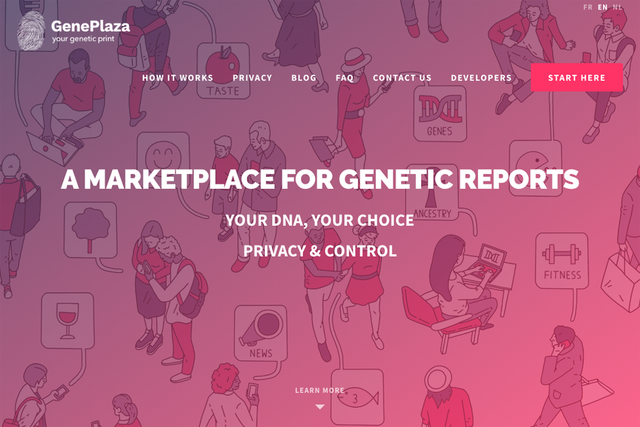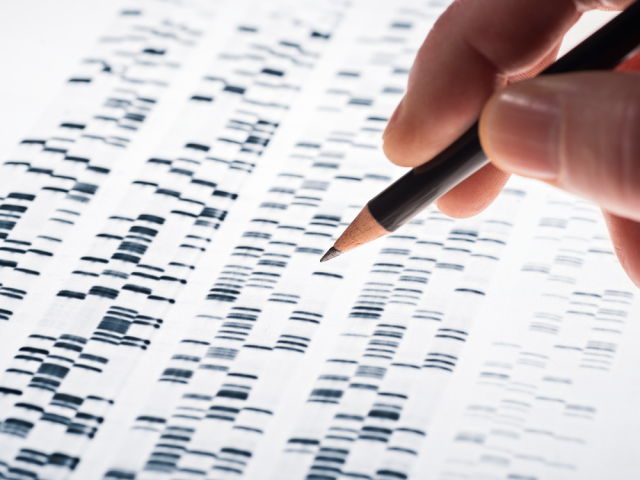By Hannah Thomasy
Are sexual preferences genetic?
According to a recent paper in Science, the answer is at least partially yes. By screening close to 500,000 DNA samples, researchers identified five locations in the genome that were significantly associated with same-sex sexual behaviour.
“This work supports the notion that there is a biological component to sexual behavior,” wrote Benjamin Neale, one of the study’s lead authors and a member of the Broad Institute of MIT and Harvard. “I am hopeful that these results will strengthen the argument for legal protections for LGBTQIA+ individuals and improve acceptance.”
Within weeks of publication, however, Neale was already calling out “a gross and dangerous mischaracterization of the work” — an app called “How Gay Are You?”
Posted on the website for GenePlaza, a consumer genetic testing company, the app claimed it could predict users’ sexual behaviour (or whether users were “Alphabet people,” as it referred to the LGBTQ community) based on lab results from a simple cheek swab.
The app was ultimately removed. But it validated ongoing concerns about the ethics of conducting genetic research related to sexual orientation — and who should be held accountable for misuse of the results.
The risks involved have been evident since 1993, when researchers first identified a potential location in the genome associated with homosexuality. The Daily Mail’s headline on the study: “Abortion hope after ‘gay genes’ findings.”
As Darrell Yates Rist of the Gay and Lesbian Alliance Against Defamation said in an interview at the time, “Intellectually, what do we gain by finding out there’s a homosexual gene? Nothing, except an attempt to identify those people who have it and then open them up to all sorts of experimentation to change them.”
More than 25 years later, some fear that not much has has changed. Landon Getz is a PhD student at Dalhousie University and the founder of the group Queer Atlantic Canadian STEM. He says that from the beginning, the study undertaken by Neale and his team “was kind of a no-win situation.”

A strong genetic link could lead to discriminatory screening for sexual orientation, he says. No genetic connection might support the idea that same-sex preferences are a choice — or worse, provide justification for so-called “conversion therapy.”
But with so much genetic data available for research, Neale believes it was “inevitable” someone would use it to look at same-sex sexual behaviour. Taking part in research himself was a way “to ensure that a diverse set of scientific perspectives, personal experience, and expertise were represented,” he writes in a post on the study for the Broad Institute website. He notes that his team included “experts in genetics, statistics, sexual behaviour, and sociology,” as well as the input of LGBTQ allies and advocates.
The authors were also careful about the framing of their work. Their abstract explicitly refutes the notion of a single “gay gene.” “Same-sex sexual behaviour is influenced by not one or a few genes but many,” they state. Moreover, they write, “many uncertainties remain to be explored, including how sociocultural influences on sexual preference might interact with genetic influences.”
“Trying to head off” the misappropriation of their research only goes so far, though, says Jeremy Yoder, an evolutionary biologist at California State University and an LGBTQ advocate.
The initial result is that it doesn’t seem to have done any good
“This is the only paper of this sort that I’ve ever seen that explicitly says in the abstract, ‘You can’t use our data to make a test that has any sort of predictive power,’” he says. “But the initial result is that it doesn’t seem to have done any good.”
Joseph Vitti, a postdoctoral researcher at the Broad Institute when the study was published, is particularly critical of the researchers’ lack of engagement with the LGBTQ group Out@Broad.
“[The members] are in-house geneticists who share an institutional affiliation, whose hearts are going to be in the right place, and are going to want to help you do the study in a way that is beneficent,” he says.
Instead, says Vitti, who started a Change.org petition for GenePlaza to remove the “How Gay Are You?” app, Out@Broad did not find out about the study until results were presented at the American Society for Human Genetics conference in 2018.
Genetic research on any variation in human biology and behaviour is of course inherently fraught. A 2017 paper on the potential to restore hearing to those born deaf through genetic therapy, for example, was hailed by some as a miraculous cure, by others as cultural genocide.

Brendan Zietsch, Neale’s co-lead on the Science paper and a professor at the University of Queensland in Australia, argues that shying away from this kind of work comes with risks as well.
“Researchers are trying to shine light on the mysteries of human nature,” he says. “Were we to avoid studying sexual preference or other such topics due to political sensitivities, we would be leaving these important aspects of human diversity in the dark, and I don’t think that would be good for anyone.”
Hank Greely is a Stanford law professor and the chair for the Steering Committee of the Center for Biomedical Ethics. He suggests that broader regulatory oversight of scientific research may be the best way forward.
Institutional boards are already set up for ethical reviews of research in both the United States and Canada. But these groups are tasked primarily to protect any human subjects involved in research. This is problematic because, as Greely points out, “You can do social harm without necessarily directly harming the individual research participants.”
Assessing the wider social impact of research is not going to be straightforward, says Vitti. “It will be crucial to balance the need for oversight with the needs for intellectual freedom and research efficiency,” he says.
“But in 2019 I don’t think we researchers can put off this conversation any longer.”
Hannah Thomasy has a doctorate in neuroscience and a Dalla Lana Fellow in Global Journalism at the University of Toronto.


